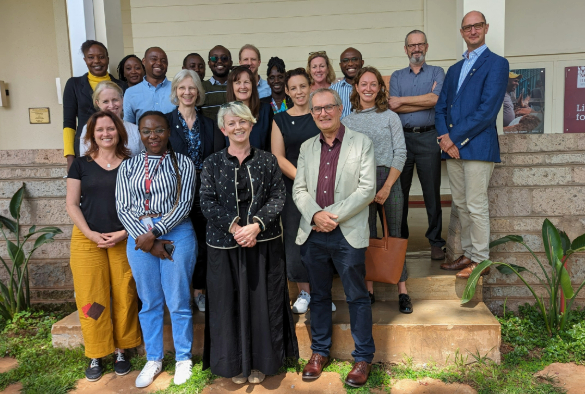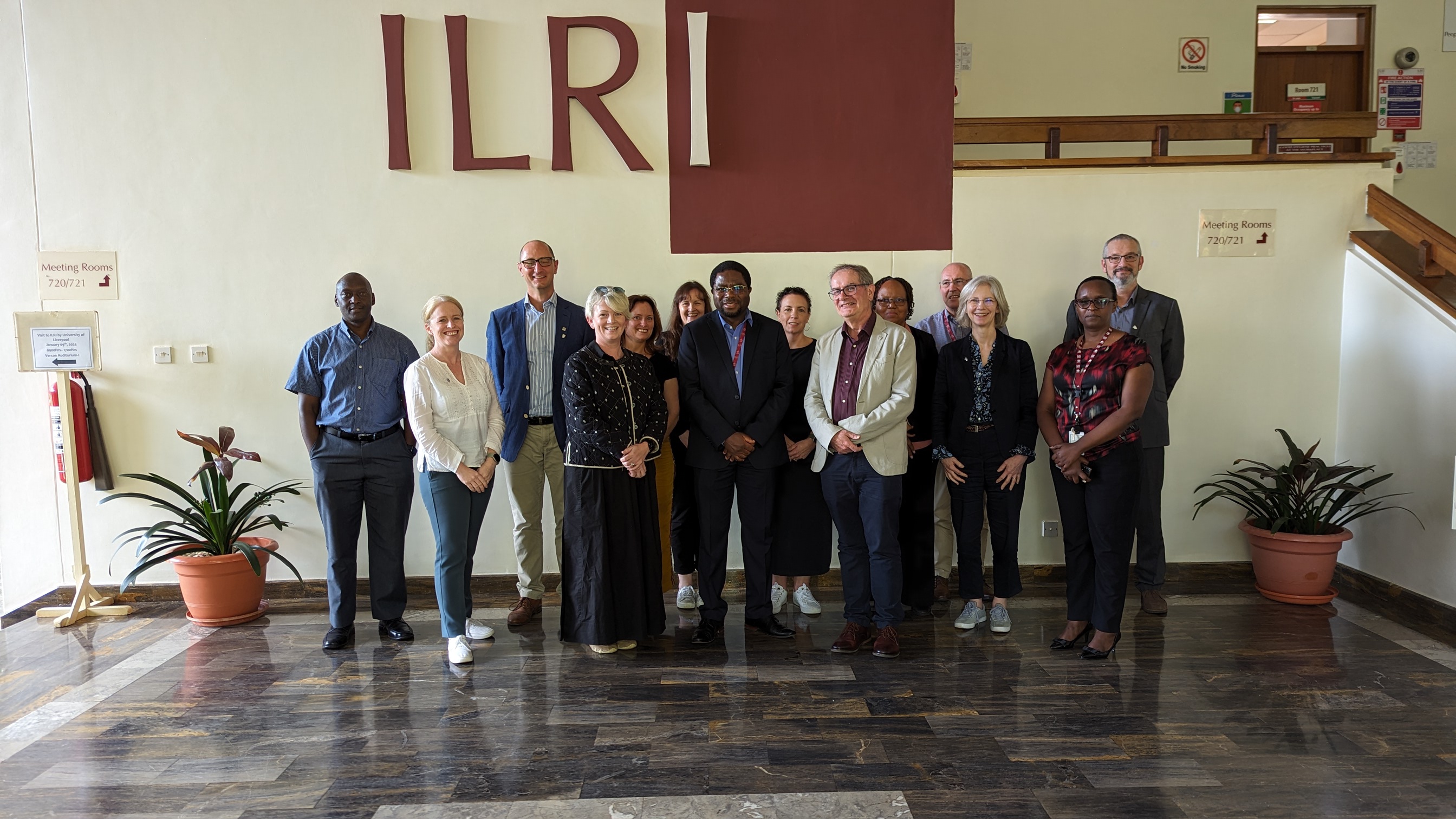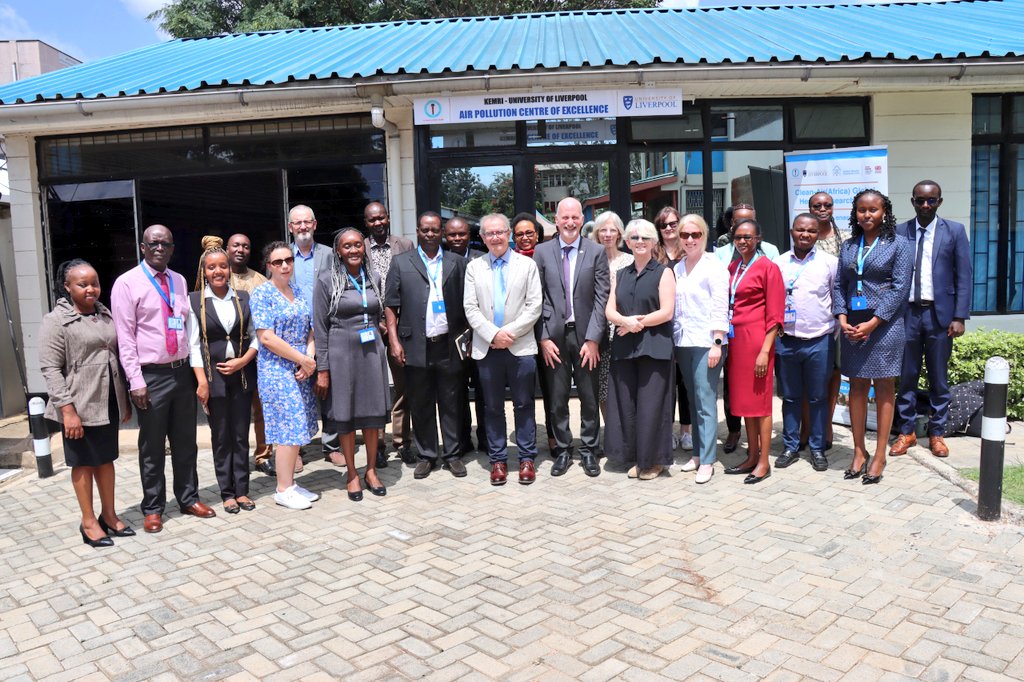
The University started the New Year with a trip to Kenya. Here a delegation from the Faculty of Health and Life Science (HLS) visited organisations and institutions dedicated to improving community health and disease prevention in East Africa.
Senior leaders from the University visited colleagues at the International Livestock Research Institute (ILRI) and the Kenya Medical Research Institute (KEMRI). Here they were given a first-hand look at the research being conducted by these key strategic partners and discussed further opportunities for collaboration.
Provost and Deputy Vice-Chancellor at the University of Liverpool, Professor Richard Black who attended the trip said: “From emerging zoonotic and vector-borne diseases, to air pollution in schools and homes, we are working with partners to better understand and tackle issues that affect local communities but have global implications. This latest trip offered us the opportunity to foster these positive relationships that have real world influence and can also give our students unique opportunities for study.”
This delegation visit forms part of the University’s ambition to be a Top 100 university as set out in the institution’s new strategy, ‘Liverpool 2031’. Key to this is building relationships to increase the University’s global impact and reputation of research and education. Find out more about the strategy here – https://strategy.liverpool.ac.uk/
More about the International Livestock Research Institute (ILRI)
 While at ILRI, the team met with Senior Leadership colleagues as well as the newly appointed Executive Managing Director of CGIAR, Ismahane Elouafi, the umbrella organisation to which ILRI belongs.
While at ILRI, the team met with Senior Leadership colleagues as well as the newly appointed Executive Managing Director of CGIAR, Ismahane Elouafi, the umbrella organisation to which ILRI belongs.
The University has a long-term collaboration with the ILRI at its principal campuses in both Nairobi, Kenya and Addis Ababa, Ethiopia with University of Liverpool staff based there full time, undertaking joint research. Importantly the relationship with ILRI involves the co-hosting of senior academic staff, postdocs, PhD and Masters students.
Recent areas of joint work include the MRC-funded Urban Zoo project. Professor Eric Fèvre, Chair of Veterinary Infectious Diseases at the University’s Institute of Infection, Veterinary and Ecological Sciences (IVES) worked with ILRI to investigate livestock as a major source of emerging zoonotic diseases. More information about a paper published on this topic can be seen here. Scientists have also traced how diverse strains of a common pathogenic bacteria spread in Nairobi, Kenya. This work sheds light on how diseases might emerge and proliferate within a complex city – and how they might best be controlled. Further reading on this can be seen here.
More about Kenya Medical Research Institute (KEMRI)

KEMRI is a regional leader in human health research and currently ranks as one of the leading Centres of excellence in health research both in Africa and globally. Their mission is to improve human health and quality of life through research, capacity building, innovation and service delivery.
The University has an ongoing partnership with KEMRI and the Office of the First Lady of the Republic of Kenya. With the University’s NIHR Global Health Research Unit on CLEAN-Air(Africa), they are tackling the urgent issue of household air pollution in sub-Saharan Africa. Together they aim to scale transition to clean cooking in Kenya by 2028 to benefit health, gender equality, the environment and the climate.
Find out more about CLEAN-Air(Africa) here. Hear the latest Original Ideas podcast featuring Professor Dan Pope, Co-Director of the NIHR Global Health Research Unit on CLEAN-Air(Africa) here.
The University of Liverpool delegation included:
Professor Richard Black, Provost and Deputy Vice-Chancellor
Professor Louise Kenny, Executive Pro-Vice-Chancellor of the Faculty of Health and Life Sciences
Professor Claire Eyers, Associate Pro-Vice-Chancellor for Research and Impact (HLS)
Professor Francine Watkins, Associate Pro-Vice-Chancellor for Education (HLS)
Cath McNamara, Head of Postgraduate Affairs and International Partnerships (HLS)
Professor Matthew Baylis, Executive Dean, Institute of Infection Veterinary and Ecological Sciences
Professor Sally Sheard, Executive Dean, Institute of Population Health